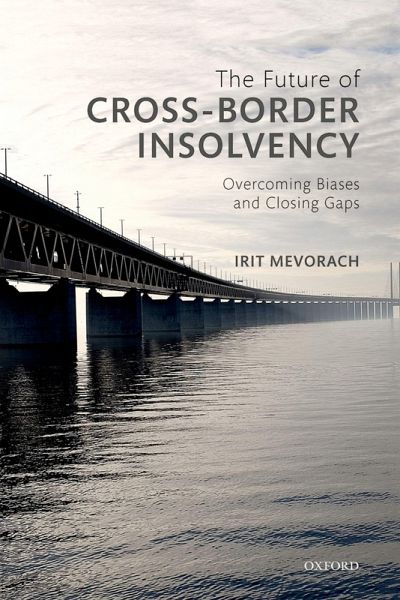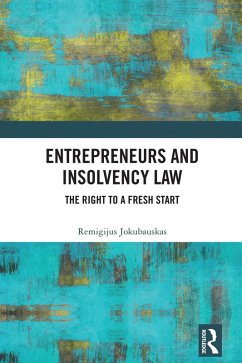
The Future of Cross-Border Insolvency (eBook, PDF)
Overcoming Biases and Closing Gaps
Versandkostenfrei!
Sofort per Download lieferbar
44,95 €
inkl. MwSt.
Weitere Ausgaben:

PAYBACK Punkte
22 °P sammeln!
A fresh and insightful guide to post-financial crisis cross-border insolvency, this book interrogates the current regime and sets out a framework for improving its future. In recent decades, and especially since the global financial crisis, a number of important initiatives have focused on developing the mechanisms for managing the insolvency of multinational enterprises and financial institutions. The book considers the effectiveness of the current system and identifies the gaps that could be bridged by adopting certain strategies and tools, to improve the system further. The book first discu...
A fresh and insightful guide to post-financial crisis cross-border insolvency, this book interrogates the current regime and sets out a framework for improving its future. In recent decades, and especially since the global financial crisis, a number of important initiatives have focused on developing the mechanisms for managing the insolvency of multinational enterprises and financial institutions. The book considers the effectiveness of the current system and identifies the gaps that could be bridged by adopting certain strategies and tools, to improve the system further. The book first discusses the theoretical debate regarding cross-border insolvency and surveys the strengths and weaknesses of the prevailing method-modified universalism in its application to both commercial entities and financial institutions, consequently identifying a single set of emerging norms. The book argues that adhering to these norms more robustly would enhance global welfare and produce the best outcomes for businesses and institutions. By drawing upon sources from international law as well as behavioural and economic theory, the book offers a blueprint for meeting the demands of future cross-border insolvencies. It considers how to translate modified universalism into binding international law and how to choose the right instrument for cross-border insolvency as well as the impact that instrument design has on decisions and choices. It explores how to encourage compliance and proposes mechanisms that could potentially overcome, or at least take into account, behavioural biases in decision-making.
Dieser Download kann aus rechtlichen Gründen nur mit Rechnungsadresse in A, B, BG, CY, CZ, D, DK, EW, E, FIN, F, GR, HR, H, IRL, I, LT, L, LR, M, NL, PL, P, R, S, SLO, SK ausgeliefert werden.













